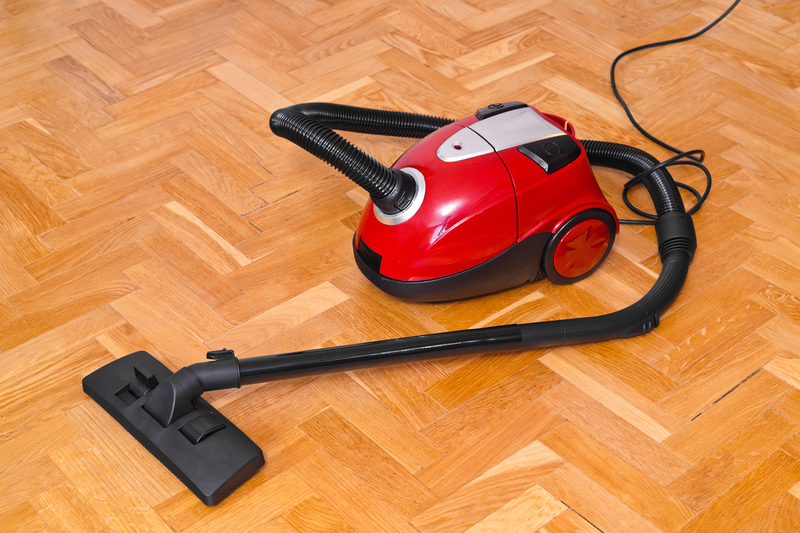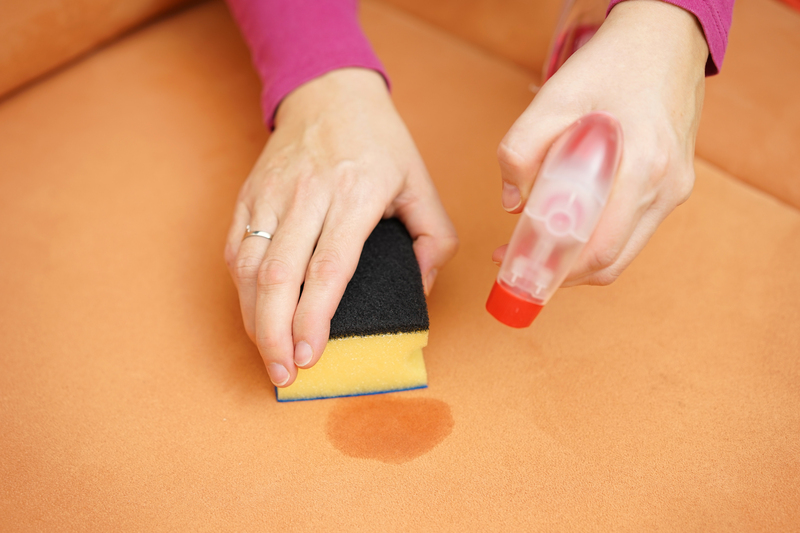How your home's air quality could be affecting your health without you knowing
Posted on 28/07/2024

In today's fast-paced world, it's easy to overlook the importance of air quality in our home. We spend a significant amount of time indoors, and yet, we rarely stop to think about the impact that the air we breathe can have on our health. The truth is, many homes have poor air quality, which can lead to a variety of health issues. In this article, we will explore how your home's air quality could be affecting your health without you even realizing it.
The Dangers of Poor Indoor Air Quality
When we think of pollution, we often imagine factory chimneys spewing out toxic fumes or smog-filled city streets. However, many people are unaware that the air inside their homes can be just as harmful. In fact, according to the Environmental Protection Agency (EPA), indoor air can be up to five times more polluted than outdoor air.
So what exactly is in our indoor air? The list may surprise you. Common household items such as cleaning products, paints, and even furniture can release harmful chemicals into the air. In addition, dust mites, pet dander, and mold can also contribute to poor indoor air quality. These pollutants can cause a range of health problems including allergies, respiratory issues, and even more serious conditions like cancer or heart disease.
The Effects on Your Health
The most immediate effects of poor indoor air quality are often experienced by those with allergies or asthma. Dust and pollen particles can aggravate existing conditions and make it difficult to breathe properly. For those who do not suffer from allergies or asthma, prolonged exposure to these pollutants can potentially trigger these conditions over time.
Poor indoor air quality has also been linked to increased rates of respiratory infections and illnesses in children and adults alike. This is especially concerning for young children whose immune systems are still developing. Additionally, long-term exposure to pollutants in indoor air has been associated with chronic diseases such as lung cancer and heart disease.
The Role of Ventilation
One of the main reasons behind poor air quality in homes is lack of proper ventilation. Indoor pollutants can build up and become concentrated without a proper way to escape. This is especially true for newer homes that are built to be more energy-efficient, as they are designed to keep air trapped inside rather than allowing it to flow freely.
Opening windows and doors can provide some relief, but this may not always be practical, especially during extreme weather conditions. An alternative solution is to invest in a good quality air purifier to help remove harmful particles from the air. You should also ensure that your home's ventilation system is regularly maintained and filters are changed as needed.
Tips for Improving Air Quality in Your Home
Aside from improving ventilation and investing in an air purifier, there are other steps you can take to improve the air quality in your home:
1. Keep your home clean: Regularly dusting and vacuuming can help remove allergens and pollutants from surfaces and the air.
2. Reduce clutter: Cluttered spaces create more areas for dust to accumulate, making it difficult to keep the air clean.
3. Use natural cleaning products: Many household cleaners contain harsh chemicals that can contribute to poor indoor air quality. Switching to natural alternatives can benefit both your health and the environment.
4. Properly maintain appliances: Gas stoves, dryers, and other fuel-burning appliances should be regularly inspected and maintained to prevent carbon monoxide buildup, which can severely impact your health.
Takeaways
It's easy to overlook the importance of indoor air quality, but the consequences can be severe. By making a conscious effort to improve ventilation, reduce pollutants, and maintain a clean living space, we can create a healthier environment for ourselves and our families.
Pros:
1. Improved overall health: By taking steps to improve indoor air quality, we can reduce our risk of developing allergies, respiratory problems, and other serious health conditions.
2. Cost-effective: Simple changes like keeping your home clean and well-ventilated can improve air quality without breaking the bank.
3. Better quality of life: Breathing cleaner air can improve our overall quality of life, leading to better sleep, more energy, and increased productivity.
Cons:
1. Initial investment: Purchasing an air purifier or making changes to your home's ventilation system may require an initial investment, but it is ultimately a worthwhile expense for the long-term health benefits.
2. Ongoing maintenance: Keeping up with regular cleaning and maintenance to prevent pollutants from building up can be time-consuming and may require additional resources.
Conclusion
We often take for granted the air we breathe inside our homes, but it's important to recognize its impact on our health. Poor indoor air quality can lead to a range of health issues that can have lasting effects. By understanding the dangers and taking proactive steps to improve air quality, we can create a healthier living environment for ourselves and our loved ones. Remember to keep your home clean, maintain proper ventilation, and invest in an air purifier if needed. Your health will thank you for it.





